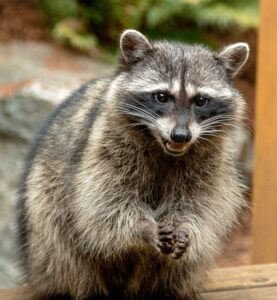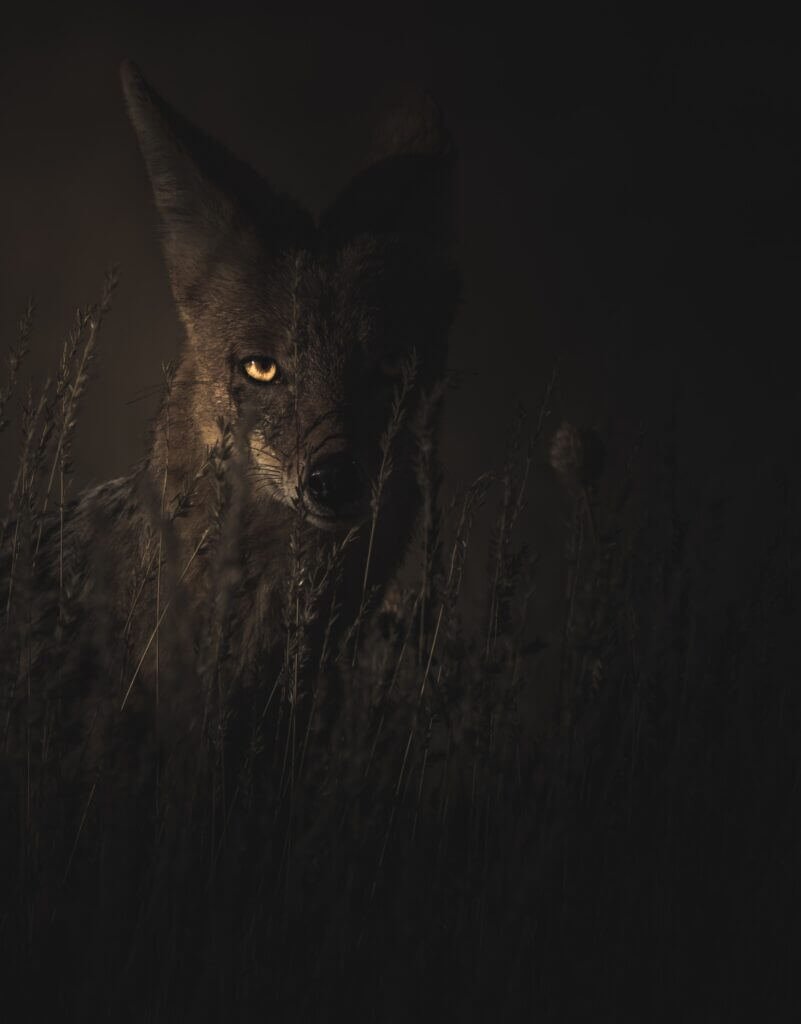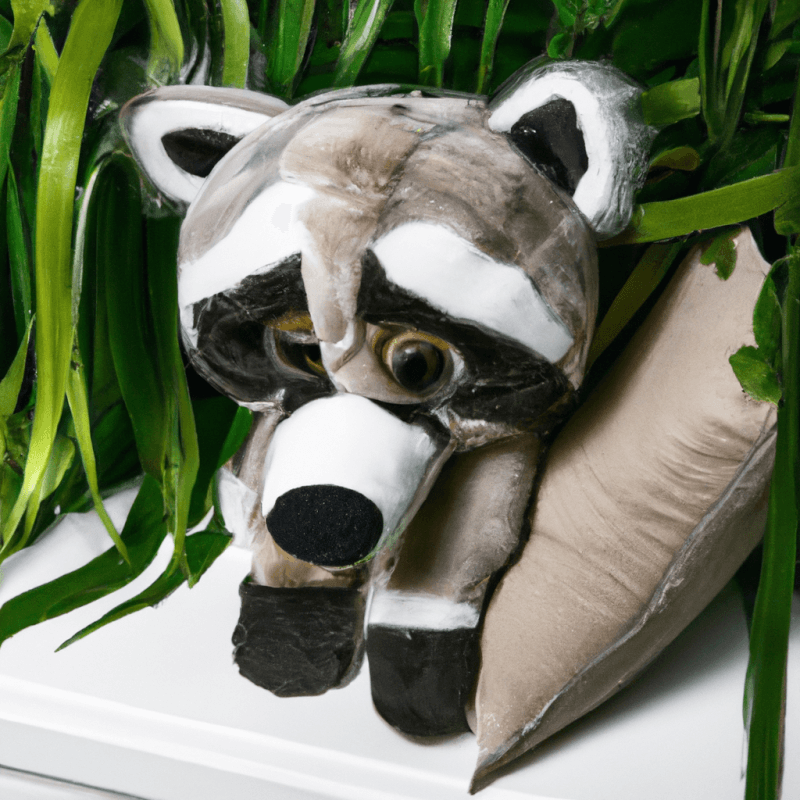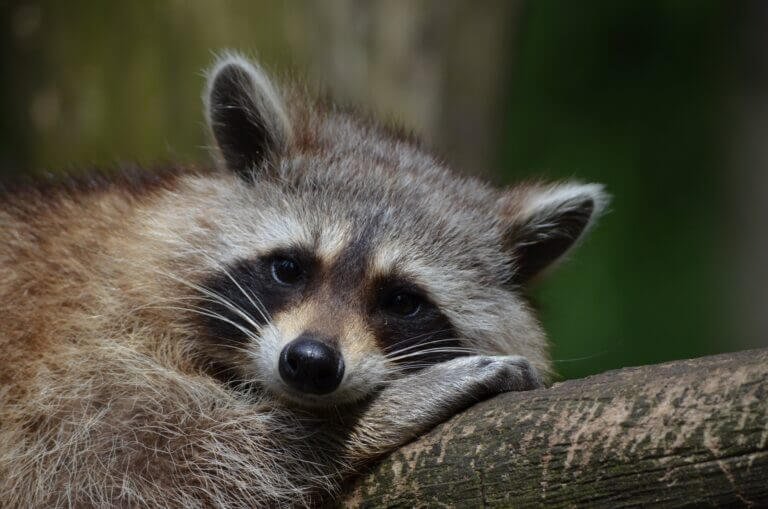Care requirements for a pet raccoon – Owning a pet raccoon can be an incredibly rewarding experience, but it also comes with its fair share of challenges. From providing the right diet to ensuring a safe and suitable living environment, there are several care requirements that need to be met to keep a pet raccoon happy and healthy. In this article, we will explore the essential aspects of caring for a pet raccoon, including their dietary needs, socialization requirements, and the necessary permits and legalities involved in owning one. So, if you’re considering bringing a raccoon into your home, read on to discover everything you need to know to provide the best care for your new furry friend!
Housing Requirements
When it comes to providing a comfortable and suitable home for your pet raccoon, cage size is of utmost importance. Raccoons are active and curious animals, so it’s essential to provide them with ample space to play, climb, and explore. A minimum cage size of 6 feet by 6 feet by 3 feet is recommended for a single raccoon. However, the larger the cage, the better, as raccoons thrive in spacious environments. Make sure to include platforms, perches, and hiding spots to offer variety and stimulation.
Ready for Cat Trivia?
Test your knowledge about cats!

Indoor vs. Outdoor Housing
Deciding whether to keep your raccoon indoors or outdoors is a crucial consideration. While raccoons can adapt to either setting, indoor housing is generally preferred for several reasons. Indoor environments provide better protection from extreme weather conditions, predators, and potential diseases. Additionally, it allows for closer interaction with your pet raccoon, promoting a stronger bond. If you choose to provide outdoor housing, ensure that the enclosure is secure, predator-proof, and offers shelter from the elements.
Enrichment and Toys
As intelligent and curious creatures, raccoons require mental stimulation and enrichment to lead healthy and happy lives. Providing a variety of toys and activities will prevent boredom and encourage natural behaviors. Puzzle feeders, treat-dispensing toys, and interactive games can keep your raccoon engaged and entertained. Remember to rotate toys regularly to keep things interesting. It’s also beneficial to include branches, logs, and other natural elements to mimic their natural environment and encourage climbing and exploration.

Feeding and Diet
Maintaining a proper and balanced diet is essential for the health and well-being of your pet raccoon. Raccoons are omnivores, which means their diet should consist of both plant matter and animal protein.
Proper Nutrition
A well-rounded diet for a pet raccoon typically includes a combination of commercial raccoon food and fresh, whole foods. Look for high-quality raccoon-specific diets that provide a balanced mix of nutrients. Supplement this with fruits, vegetables, eggs, and small amounts of lean meats. Be sure to consult with a veterinarian specializing in raccoon care to create a suitable diet plan for your furry friend.
Food Sources to Avoid
While it’s crucial to offer a varied diet, certain foods can be harmful or toxic to raccoons. Avoid feeding your pet raccoon foods such as chocolate, caffeine, onions, garlic, grapes, raisins, and foods high in salt and sugar. These can cause serious health issues and should never be included in their diet.
Feeding Schedule
Establishing a regular feeding schedule is essential for maintaining a healthy routine for your raccoon. Adult raccoons generally require one or two meals a day, while younger raccoons may need more frequent feedings. Spread out the meals throughout the day to mimic their natural foraging behavior. Monitor their weight and adjust the portion sizes accordingly to prevent obesity or malnutrition.

Grooming and Hygiene
Keeping your pet raccoon clean and well-groomed is crucial for their overall health and hygiene. Regular bathing, nail trimming, and ear cleaning should be part of your raccoon care routine.
Bathing
Raccoons are naturally clean animals and may not require frequent bathing unless they get particularly dirty. When bathing your raccoon, use lukewarm water and a gentle, pet-safe shampoo. Be mindful of their eyes, ears, and mouth, and ensure thorough rinsing to avoid any residual soap. Afterward, provide a warm and comfortable space for them to dry off.
Nail Trimming
Trimming your raccoon’s nails is important to prevent overgrowth, which can lead to discomfort or injury. Familiarize your raccoon with nail trimming from a young age to make the process easier. Use specifically designed pet nail clippers and be careful not to cut into the quick. If you’re unsure or uncomfortable doing it yourself, consult a veterinarian or professional groomer for assistance.
Ear Cleaning
Regularly checking and cleaning your raccoon’s ears is essential to prevent ear infections and maintain overall hygiene. Use a damp cloth or a pet-safe ear cleaning solution to gently wipe the outer part of the ear. Avoid inserting anything into the ear canal, as it can cause injury. If you notice any signs of infection or discomfort, such as redness, discharge, or odor, consult a veterinarian as soon as possible.
Exercise and Enrichment
Providing opportunities for exercise and enrichment is vital for the physical and mental well-being of your pet raccoon. Raccoons are naturally active animals and require space and stimulation to thrive.
Outdoor Enclosures
If you choose to house your raccoon outdoors, it’s essential to provide them with a secure and spacious enclosure. The enclosure should be escape-proof, predator-proof, and have ample room for climbing, digging, and exploring. Ensure that there are both shaded and sunny areas, as well as shelter from inclement weather. Regularly inspect the enclosure for any potential hazards or weaknesses.
Stimulating Activities
Raccoons are highly intelligent and inquisitive creatures, so engaging them in stimulating activities is vital. Provide toys that encourage problem-solving, such as puzzle feeders or interactive games. Incorporate opportunities for foraging and hide treats or food puzzles around their living space to stimulate their natural instincts. Regular playtime and interaction with you can also provide mental and physical stimulation.
Social Interaction
Raccoons are naturally social animals, and interaction with their human companions is crucial for their well-being. Spend time with your raccoon, play with them, and provide companionship. Avoid prolonged isolation, as it can lead to loneliness and behavioral issues. However, remember that raccoons are wild animals at heart, and their behaviors can be unpredictable. Always approach interaction with caution and respect their boundaries.

Health and Veterinary Care
Maintaining the health of your pet raccoon requires regular veterinary care and attention to potential health issues.
Finding a Raccoon-Experienced Veterinarian
Finding a veterinarian with experience and knowledge in raccoon care is paramount. Not all veterinarians are familiar with raccoon health and specific needs, so it’s crucial to do your research and find a reputable expert. They will be able to provide guidance on vaccinations, routine check-ups, and any health concerns that may arise.
Vaccinations
Vaccinations are essential for protecting your pet raccoon from preventable diseases. Consult with a raccoon-experienced veterinarian to determine the necessary vaccinations for your specific location and circumstances. Common vaccinations for raccoons include rabies and distemper. Maintain a regular vaccination schedule to ensure the ongoing health and well-being of your raccoon.
Parasite Prevention
Regular parasite prevention is necessary to keep your raccoon healthy and free from infestations. Fleas, ticks, and internal parasites can cause significant health issues and discomfort. Consult with your veterinarian to establish a suitable parasite prevention plan, which may include flea and tick treatments, regular deworming, and preventative medications. Remember to regularly check your raccoon for any signs of parasites and promptly seek veterinary care if necessary.
Legal and Ethical Considerations
Before considering a pet raccoon, it’s essential to understand the legalities and ethical aspects associated with owning one.
Legalities of Owning a Pet Raccoon
Owning a pet raccoon is subject to regulations and laws that vary by jurisdiction. Some areas may prohibit owning raccoons as pets, while others may require specific permits or licenses. Research the laws in your area and ensure compliance with all legal requirements before bringing a raccoon into your home. This will help prevent potential legal issues and ensure the well-being of the raccoon.
Ethical Considerations
Ethical considerations must be taken into account when contemplating owning a wild animal like a raccoon. Raccoons are highly intelligent and have complex social and emotional needs. Consider whether you can provide an appropriate environment and meet their specific care requirements. Additionally, be mindful of where the raccoon came from. Avoid supporting illegal wildlife trade or breeders with unethical practices. Whenever possible, consider adopting a rescued raccoon or exploring alternative ways to contribute to raccoon conservation.
Potential Dangers of Invasive Pets
While raccoons can make fascinating and affectionate companions, it’s essential to be aware of the potential dangers of keeping invasive pets. If a pet raccoon were to escape or be released into the wild, it could have detrimental effects on native wildlife populations. Raccoons are highly adaptable and can outcompete native species for resources. Always ensure that your raccoon is responsibly confined and take precautions to prevent escapes or accidental releases.
In conclusion, providing the proper care and attention to your pet raccoon is crucial for their health and well-being. Housing, feeding, grooming, exercising, and ensuring regular veterinary care are all essential aspects of responsible raccoon ownership. Understanding the legal and ethical considerations associated with owning a raccoon is equally important. By following these guidelines and providing a safe and stimulating environment, you can create a happy and fulfilling life for your pet raccoon.


